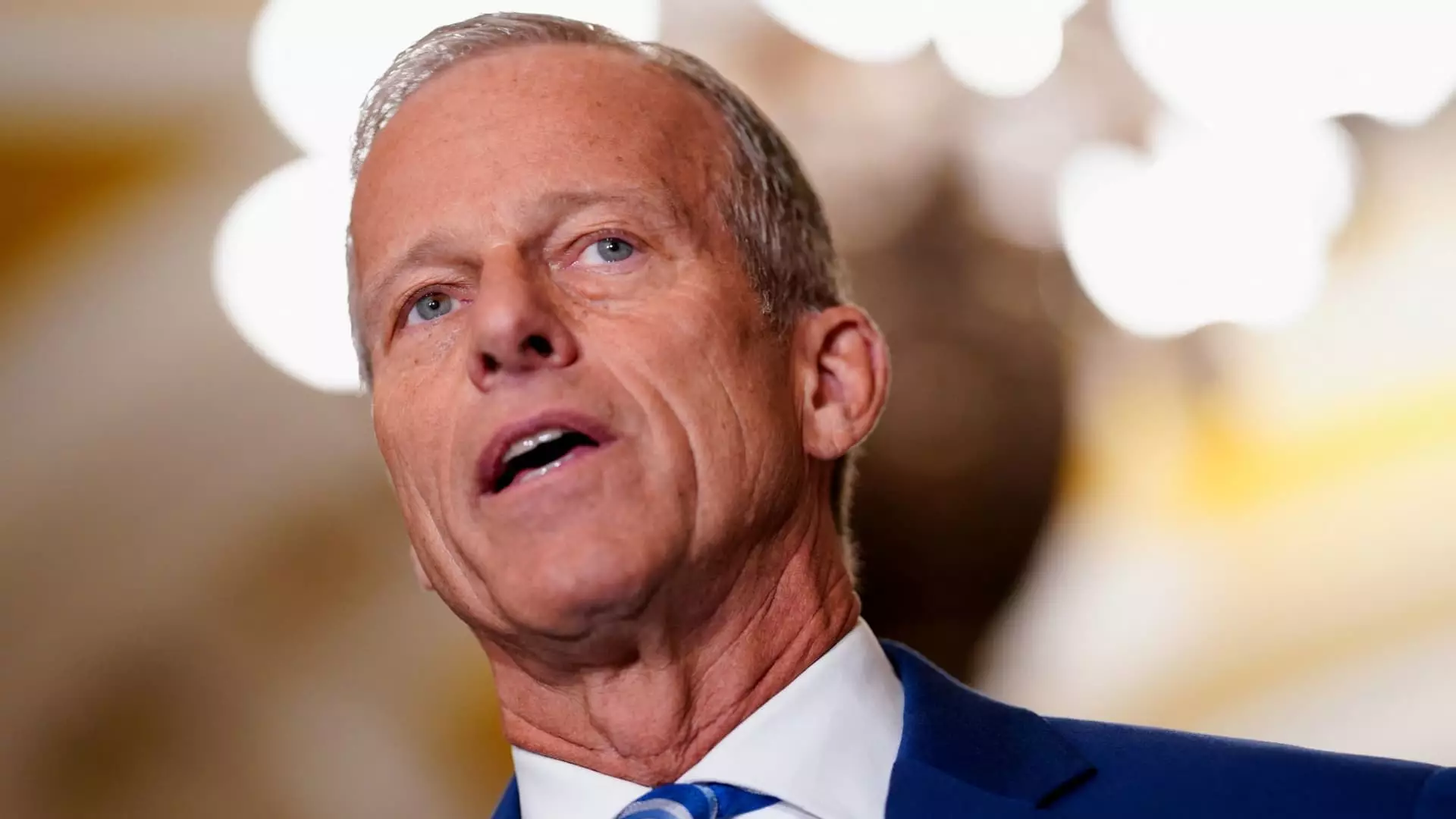The recent Senate procedural vote on President Donald Trump’s sprawling domestic spending bill, dubbed the “big, beautiful bill,” was hailed by its architects as a major accomplishment. Yet, beneath the veneer of victory lies a fragile coalition teetering on the brink of collapse. With a razor-thin 51-49 outcome—secured only after weeks of intense lobbying, bipartisan opposition, and last-minute defections—the passage exposed deep fault lines within the Republican Party. Far from demonstrating strength, this vote revealed how thinly knit and unstable the GOP’s majority has become, begging serious questions about the long-term viability of such a sprawling, contentious budget proposal.
The Illusion of Republican Consensus
Claiming a victory based on the narrow margin ignores the political reality that the party barely avoided defeat. Three Republicans who initially resisted—Senators Mike Lee, Rick Scott, and Cynthia Lummus—relented only after arduous negotiations. Even Senator Ron Johnson, a vocal critic, shifted his stance at the last moment. Meanwhile, virtually every Democrat opposed the bill, with only two moderate Republicans dissenting. This is not the show of unified support one expects for legislation of this magnitude. Rather, it’s a testament to fractured loyalties and growing dissatisfaction within the party over the bill’s content and approach. The bill’s survival owes more to political arm-twisting and fragile alliances than genuine agreement.
The Contentious Content and Its Consequences
The substance of Trump’s bill merits skepticism. It’s a gargantuan 940-page document packed with sweeping domestic policy changes, notably deep Medicaid cuts—a point of fierce objection from many on both sides of the aisle. Republicans are divided over whether these reductions represent responsible fiscal discipline or an irresponsible gutting of essential social services. This split risks alienating moderate conservatives and independents alike, undermining the party’s broader electoral appeal. Moreover, Democrats have vowed to use all parliamentary tools available to slow down the bill’s passage, signaling protracted battles ahead that could further strain legislative patience and cooperation.
Strategic Missteps and the Gunpowder Trail to July 4
Chief Senate Republican John Thune’s pledge to deliver the bill to Trump by the symbolic July 4 deadline speaks more to political theater than strategic wisdom. Setting such a high-pressure deadline risks pushing fractured caucuses into rash votes, especially when the House remains a separate battleground full of dissent. Speaker Mike Johnson’s slim majority means that passing this contentious budget package will require more than simple party-line votes—it demands cultivating fragile consensus in an era marked by internal GOP turmoil. This ambitious timeline could backfire, precipitating further fractures and amplifying legislative gridlock.
The Case for a Measured, Principled Approach
What is striking about this spectacle is the absence of purposeful, reasoned debate about the bill’s priorities. The Senate floor is poised to embark on an exhaustive, possibly all-night reading ritual—stark evidence of how little legislators have engaged with the bill’s details prior to pushing it forward. This procedural charade exposes the danger of hurry-up legislation driven by political brinkmanship rather than thoughtful governance. Responsible lawmakers should view this moment as an occasion to pause and reflect rather than rush. Compromise, not coercion, is what the American people need—especially when domestic policy can so directly affect millions’ lives.
A Partisan Marker of GOP Priorities
Ultimately, Trump’s “big, beautiful bill” symbolizes a crossroads for the Republican Party. It’s not simply a budget plan; it is a litmus test of the party’s willingness to prioritize ideological purity over pragmatic governance. The willingness to slash Medicaid at a time when social safety nets are critical flies in the face of a more compassionate, moderate conservatism that many voters crave. It also reinforces the narrative that the GOP is increasingly beholden to Trump’s agenda, for better or worse. This alignment risks alienating suburban and independent voters whose support is crucial for future electoral success.
Legislators ought to recognize that raw political calculus should not overshadow their responsibility to craft sustainable, equitable policy. Without this recognition, the party risks becoming a cautionary tale of internal discord, lost opportunities, and disconnect from the diverse needs of the American electorate. This bill’s narrow passage signals not strength, but urgent calls for a recalibration of priorities—lest political theater continue to undermine governance in Washington.

Leave a Reply